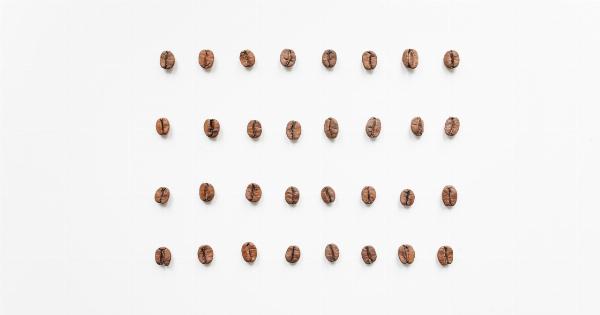Caffeine, a naturally occurring stimulant found in coffee, tea, and certain other beverages, has long been known for its ability to boost energy levels and improve mental alertness.
However, recent research suggests that caffeine may also have potential benefits for liver health. In this article, we will explore the dosage guidelines for consuming caffeine to achieve optimal results in promoting liver health.
Understanding the Liver’s Role in the Body
The liver is a vital organ that plays a crucial role in the body’s metabolic processes. It is responsible for filtering toxins from the blood, aiding digestion, regulating blood sugar levels, and producing essential proteins.
Maintaining a healthy liver is essential for overall well-being and preventing various liver diseases, such as fatty liver disease, cirrhosis, and liver cancer.
The Potential Benefits of Caffeine for Liver Health
Studies have shown that caffeine may have several potential benefits for liver health:.
1. Protection against Liver Diseases
Research suggests that moderate caffeine intake may help protect against liver diseases, such as non-alcoholic fatty liver disease (NAFLD) and liver fibrosis.
Caffeine has been found to reduce fat accumulation in the liver and inhibit the progression of liver fibrosis, potentially minimizing the risk of more severe liver diseases.
2. Prevention of Liver Cancer
Regular coffee consumption, which is a major dietary source of caffeine, has been associated with a lowered risk of developing liver cancer.
Caffeine’s antioxidant properties and its ability to reduce inflammation may contribute to its potential protective effects against liver cancer.
3. Enhanced Liver Detoxification
The liver plays a vital role in detoxifying harmful substances from the body. Caffeine may stimulate liver function, aiding in the detoxification process and helping the liver remove toxins more efficiently.
Recommended Dosage of Caffeine for Liver Health
While moderate caffeine consumption has shown potential benefits for liver health, it is essential to consume it in a responsible and controlled manner.
The recommended dosage varies based on individual factors such as age, overall health, and any pre-existing liver conditions. Here are some guidelines to consider:.
1. Moderate Intake
The general consensus among health experts is that moderate caffeine intake, equivalent to 400 milligrams (mg) per day, is safe for most healthy individuals.
This amount is roughly equal to four cups of brewed coffee, ten cups of brewed black tea, or two energy shots.
2. Personalize the Dosage
Individuals with certain liver conditions or sensitivity to caffeine may need to adjust their caffeine intake accordingly.
It is essential to consult with a healthcare professional to determine the appropriate dosage that aligns with one’s specific health needs and goals.
3. Timing of Consumption
Consuming caffeine earlier in the day allows the liver to metabolize it efficiently and minimizes any potential sleep disturbances.
Avoiding caffeine close to bedtime is crucial to maintaining a healthy sleep routine, as quality sleep is vital for overall liver health.
Considerations and Potential Risks
While moderate caffeine intake has been associated with potential benefits for liver health, excessive consumption or reliance on caffeine for liver health alone can have adverse effects. Some important considerations include:.
1. Individual Tolerance
Individuals may have varying sensitivities to caffeine. It is crucial to be aware of personal tolerance levels and any adverse reactions.
If consuming caffeine leads to insomnia, nervousness, or digestive issues, it may be necessary to decrease the dosage or eliminate caffeine intake altogether.
2. Interactions with Medications
Caffeine can interact with certain medications, especially those metabolized by the liver.
People taking medications should consult their healthcare provider to ensure that caffeine consumption does not interfere with their medications or liver function.
3. Balance and Moderation
While caffeine may have potential benefits for liver health, it is essential to maintain a balanced and varied diet that includes other liver-friendly foods and lifestyle habits.
Incorporating a nutrient-rich diet, regular exercise, and avoiding excessive alcohol consumption are equally crucial for maintaining optimal liver health.
Conclusion
Caffeine, when consumed in moderation and as part of a balanced lifestyle, may have potential benefits for liver health. However, individual dosage requirements and considerations should be taken into account.
It is always advisable to consult with a healthcare professional for personalized guidance on incorporating caffeine into one’s diet for optimal liver health.































